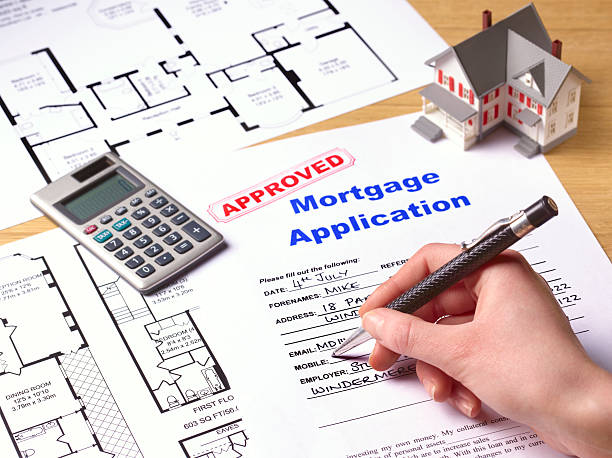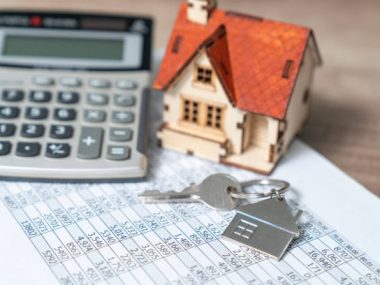How long is the average mortgage? The decision to become a homeowner is a significant step in one’s financial journey, often accompanied by the intricate process of securing a mortgage.
Central to this process is the consideration of how long the mortgage term should be. “How long is the average mortgage?” is a question that echoes through the minds of potential homebuyers as they navigate the world of real estate financing.
The duration of a mortgage has far-reaching implications, affecting not only monthly payments but also long-term financial strategies and homeownership goals.
In this article, we will delve into the factors that influence the length of a mortgage.
Whether you’re a first-time buyer or a seasoned homeowner contemplating a new mortgage, understanding the nuances of mortgage duration is a vital step toward making informed and empowered decisions in the realm of homeownership and personal finance.
Also Read:
How Long After Bankruptcy Can You Get a Mortgage?
How Long Does a Cosigner Stay on a Mortgage?
How Long Is the Average Mortgage?
The average mortgage duration is a critical aspect of homeownership, shaping both short-term affordability and long-term financial goals.
The most common mortgage term in the United States is 30 years.
This period strikes a balance between manageable monthly payments and a reasonable overall repayment timeline.
Shorter-term options, such as 15-year mortgages, offer quicker debt repayment and lower interest costs, though they come with higher monthly payments.
On the other hand, longer-term mortgages, like 40 or 50 years, might reduce immediate payment burdens but can result in higher interest payments over the life of the loan.
The choice of mortgage term depends on individual circumstances, risk tolerance, and financial objectives.
Homebuyers seeking stability and consistent payments often opt for longer terms, while those aiming to save on interest and build equity faster might choose shorter terms.
It’s important to note that interest rates and market trends also impact mortgage duration considerations.
Pros and Cons of Different Mortgage Terms
Different mortgage terms offer a range of pros and cons that can significantly impact a homeowner’s financial strategy.
Shorter-term mortgages, such as 15-year loans, present the advantage of faster equity buildup and lower overall interest costs.
However, their drawback is higher monthly payments, potentially straining a homeowner’s budget.
Conversely, longer-term mortgages like 30-year loans come with lower monthly payments, making homeownership more accessible.
Nonetheless, they entail higher interest payments over time. These longer terms can suit those seeking financial flexibility and the ability to invest their money elsewhere.
Balancing the scale are extended mortgage terms like 40 or 50 years, which provide even more affordable monthly payments but lead to elevated total interest expenses.
These may be suitable for buyers in markets with steep property prices.
Choosing the right term involves considering current financial capabilities, long-term goals, and risk tolerance.
Shorter terms can lead to quicker debt resolution but might limit disposable income.
Longer terms offer budgetary comfort but could mean more extensive interest outlays.
Ultimately, each mortgage term has trade-offs that align differently with individual circumstances.
A comprehensive analysis of one’s financial situation and objectives, coupled with an understanding of interest rate trends, can guide homeowners toward a term that optimally harmonizes affordability and wealth-building aspirations.
Strategies for Paying Off Your Mortgage Sooner
Paying off a mortgage sooner can provide financial freedom and substantial interest savings.
One effective approach is to make extra payments toward the principal balance.
This reduces the outstanding debt and accelerates equity growth.
Another tactic is to switch to biweekly payments, effectively making 26 half-payments a year instead of 12 full ones.
This adds up to an extra monthly payment annually, shortening the loan term.
Refinancing to a shorter-term mortgage, such as from a 30-year to a 15-year loan, can expedite repayment.
While monthly payments increase, interest rates are often lower, reducing overall interest costs.
Windfalls, like tax refunds or bonuses, can be wisely applied to the mortgage principal.
Creating a dedicated budget for additional mortgage payments ensures consistency.
Some homeowners consider downsizing or using rental income to contribute more toward the mortgage.
However, it’s crucial to assess the potential impact on lifestyle and future financial goals.
Before implementing any strategy, confirm that there are no prepayment penalties or fees associated with early payment.
Careful consideration of personal financial circumstances, long-term goals, and risk tolerance is essential.
Each extra payment contributes to building equity and reducing the interest burden, ultimately paving the way to a mortgage-free future.
Also Read:
When Do You Stop Paying Mortgage When Selling House?
What Happens to Your Mortgage During a Recession?
Conclusion
When it comes to homeownership, the duration of the average mortgage is a pivotal decision with enduring ramifications.
The choice between shorter and longer terms hinges on a delicate balance of immediate affordability and long-term financial objectives.
As markets evolve and economic conditions fluctuate, the ideal mortgage duration may shift.
However, a thorough understanding of the pros and cons associated with different terms empowers individuals to align their choices with their unique aspirations.
Ultimately, whether opting for a swift repayment with higher monthly commitments or a longer horizon with manageable payments, informed decisions about mortgage duration can set the stage for a secure and prosperous homeownership journey.






